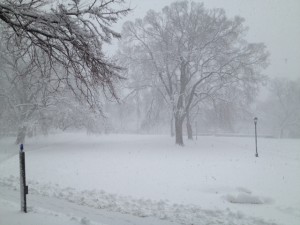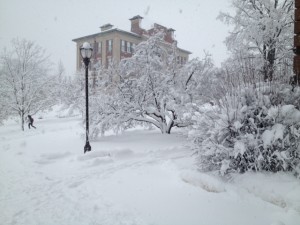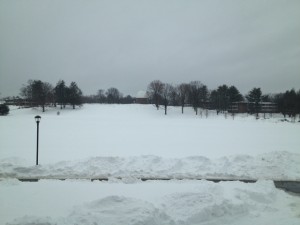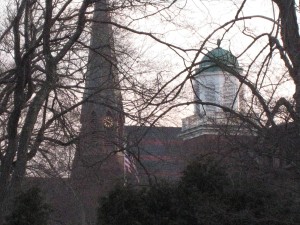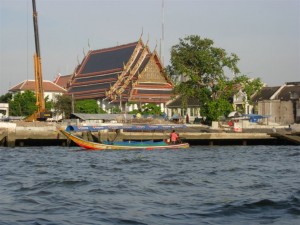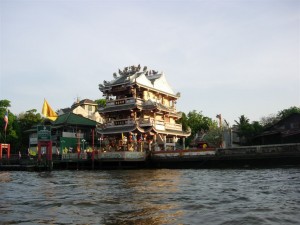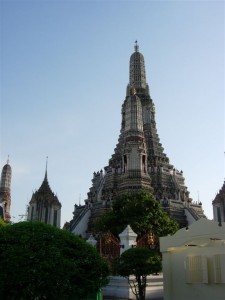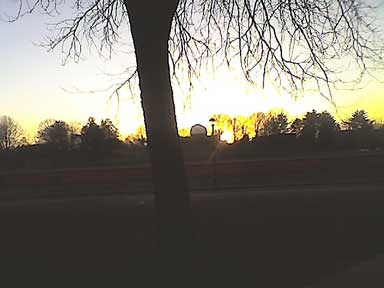Every March, faculty and students find the two weeks without classes a welcome breather before the intense rush toward finals and the end of the semester. For a group of determined seniors, though, the March break is crunch time as they prepare their senior theses. And there are many faculty who are working harder than ever as they read drafts and discuss final strategies with their honors students. March may come in like a lion and leave like a lamb (we hope) from the perspective of the weather, but for folks slaving away in their labs in Shanklin and Hall Attwater, or their carrels in Olin, or in the studios of the CFA, March is a key opportunity to bring projects closer to completion.
Sam Ebb, who I know as an active representative on academic matters from the WSA, is writing about compulsory voting, and why it may be a solution to solving the problem of economic inequality, misrepresentation, and the role of big money in the US. I wonder if Sam thinks we should try compulsory voting at Wes. Like Sam, Elizabeth Williams is doing a CSS thesis. Prof. Elvin Lim reports she is writing about the evolving role and involvement of the coal industry in the West Virginian economy, exploring the accumulated, path-dependent effects of the industry during its highs and especially its lows on the state’s post-industrial economy.
Michaela Tolman has been working at characterizing the types of neurons made by mouse and human embryonic stem cells, both in a culture dish and after transplantation to the mouse hippocampus. Under certain conditions we can generate inhibitory interneurons, which may be useful for suppressing seizures in mouse models of temporal lobe epilepsy, or so Laura Grabel tells me!
Like Amy Bloom, I’m a big fan of writer and musician Jason Katzenstein. Jason is writing a graphic novel, entitled Close To Me, about anxiety and love, both familial and romantic. How romantic is hairstyling in the Ancien Régime? Dean Andrew Curran tells me about another CSS thesis, by Eliza Fisher, who is studying the rise and consolidation of absolutism under Louis XIV and XV and the simultaneous creation of consumer culture. Her goal is to identify what the history of hairstyles in Bourbon France can tell us about the economic, sexual, and to a certain extent, political culture of the era. How cool is that?
Speaking of cool topics, Kari Weil told me about these COL theses: Samantha Januszeski is cooking up an analysis of the raw food movement in “You are what you eat”: An ethnographic study of Raw Foodism. Kyra Sutton is using her critical theory acumen to think about identity and religion in Islam’s Turn on the Couch: Psychoanalytic Theorizing of Muslim Identity in France. Ethan Kleinberg tells me that Savannah Whiting (Sociology and Romance Languages) is comparing the ways that Algeria figures in the work of Derrida and Bourdieu. Tobah Aukland (COL) is exploring Jewish art collectors and dealers in Paris from the late 19th century through Vichy in relation to issues of Franco-Jewish identity.
Jessica Wilson is finalizing curatorial decisions for her photography thesis exhibition. Jessica is interested in portraits of imitators. Nick Kokkinis (Math and Studio Art) is working on a painting senior thesis that Tula Telfair has described to me as post-minimalist. All I know is that post minimalism takes maximum effort!
Steve Collins reports that “the 16mm theses filmmakers are all tucked inside the editing rooms finishing their films.” Here are a few of his descriptions: “Ethan Young‘s black and white horror film is a nail-biting tale of a very scary house and some trauma that occurred there. It didn’t hurt the atmosphere that the crew found bags of sheep and goat carcasses in the abandoned house they were filming (they reported them to the police). Jenna Robbins is making a film about a young office worker struggling with her fantasies of perfection in order to find true love. Gabriel Urbina is editing and recording his score for his musical/hostage film, a classic Wesleyan genre mash-up combining gun-play with tap-dancing. And Chris McNabb is putting his deadpan wit and precise filmmaking into the final editing of Driven, his comic/melancholy tale of a suburban Dad pushed to his brink.”
Driven…and they call it a break….
Update:
Jennifer Tucker, who is organizing some lunch-time presentations by Wes students at the Allbritton Center later this term, wrote in from a research trip in England. She told me about the fabulous thesis of Aria Danaparamita, who will be presenting her work at a conference at Yale at the end of March. Aria’s title is British Borobudur Buddha: Sir Thomas Stamford Raffles, Orientalist Antiquarianism and (Post colonial) Development in Java.
Sara Mahurin, who is a visiting professor in English and African American Studies, writes about the following students: “[…]; Alex Kelley is writing a fascinating creative thesis comprised of “vignettes” — meditative micro-narratives from the perspective of an aging biology teacher, each taking for its starting point some species of animal; Alex Wilkinson is writing about legacy and liminality in Faulkner.”
James Gardner’s thesis is a historical analysis of Afro-Germans from the 1800s to modern day. It focuses primarily on Germans of African descent, their history and the reactions to their presence during three main eras of modern German history. James writes that “my research is a reaction to racism and discrimination that I noticed Afro-Germans faced during my recent study abroad in Berlin and work with one of the women who spearheaded the Afro-German identity movement in the 1980s, Katharina Oguntoye.”
I’m happy to add more names and topics for the next several days…
Katja Kolcio just wrote in with this good news: Elena Georgieva who finished her thesis on the connection between science and dance at Wesleyan, just won an American Society for Biochemistry and Molecular Biology Honor Society Undergraduate Award for excellence in academics, research, and outreach (granted to only sixteen students every year). She is presenting her thesis to the Annual ASBMB Meeting in April 2013. She also presented her work at the Harvard Undergraduate Interdisciplinary Research Conference in January. Congratulations to Elena!





